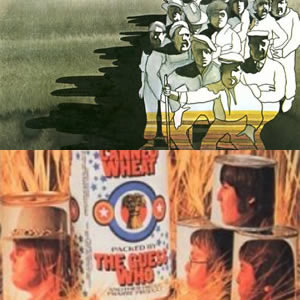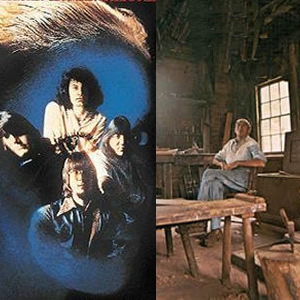The Guess Who’s 1969 albums
Buy Wheatfield Soul Buy Canned Wheat Although the group was already over a decade old and had already released three albums, the pop career of The Guess Who really got underway with the […]

Buy Wheatfield Soul Buy Canned Wheat Although the group was already over a decade old and had already released three albums, the pop career of The Guess Who really got underway with the […]

Buy American Woman Buy Share the Land The year 1970 saw the apex of popularity for The Guess Who as well as the initial cracks in their band unity. The two albums they […]